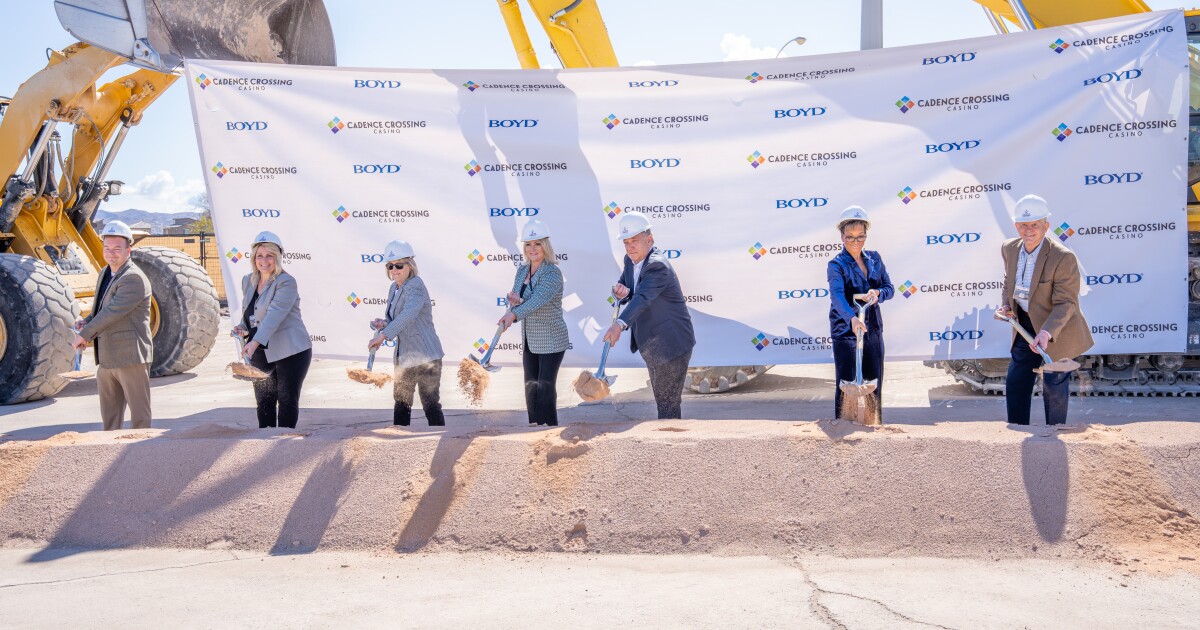American operators in Macau’s casino sector can author their own stories, or let others do it for them, as US-China trade tensions heat up.
Starting in 2010, I tried to sell a book examining the breathtaking expansion of Macau’s casino sector. The book’s central question was why mainland China allowed the equivalent of hundreds of billions of dollars a year to migrate offshore via Macau’s casinos.
What had been a trickle became a flood after Las Vegas Sands Corporation’s Sands Macau changed the game in the city and its Venetian Macao launched a brave new world in Cotai, transforming an unwanted swampy landfill into most lucrative casino cluster on the planet.
The money flow out of China through the American-led growth of Macau’s casinos seemed to be an incredibly obvious potential friction point, the proverbial 800 pound gorilla on the gaming floor, but hardly anyone mentioned it back then. No publisher bought the book, and the question went unanswered.
While publishers were rejecting my book pitch, Xi Jinping appears to have had the same question on his mind, and he didn’t need a publisher. When he became China’s leader in 2012, he wrote his own book. Xi’s administration cracked down on funds leaving the mainland beyond the legal limit of roughly US$5,000 per traveler per trip, culminating in the crackdown on leading junket promoters facilitating excessive money movements.
Macau casinos, and other Asian markets are still struggling to come to terms with the post-junket era.
Irony rich formula
As trade and political tensions escalate between the United States and China with Donald Trump’s return to the White House, Macau’s American casino operators seem like tempting targets for retaliation by Beijing. Not only do US-owned entities run three of Macau’s six casino concessionaires, but, in a potentially irresistibly delicious irony, Trump once ran his own casinos – straight into bankruptcy.
Via Hong Kong listed subsidies they control, American companies LVS, Wynn Resorts and MGM Resorts International have multi-billion dollar investments in seven integrated resorts in Macau, accounting for roughly half of the city’s gaming revenue (and gaming tax receipts). Melco Resorts, helmed by Lawrence Ho, has a US stock listing for its operating company.
Moreover, Wynn Resorts founder Steve Wynn was a major Trump supporter in that failed casino mogul’s first presidential run. They became political allies despite a very public and publicised feud during the 1980s when they had Atlantic City properties bearing their names.
In 2018, when sexual harassment allegations arose that ultimately cost Wynn his ownership and executive control of the company he founded, his first act of recognition, if not contrition, was to resign as finance chairman of the Trump-led Republican Party.
LVS founder Sheldon Adelson was the largest donor to Republican candidates in 2016 and to Trump’s 2020 re-election campaign. His widow Miriam Adelson, now the LVS controlling shareholder, continued the family tradition in 2024. In 2018, Trump awarded Israeli-born Dr Adelson – she’s an accomplished physician – the Presidential Medal of Freedom, the highest US civilian honor.
Former US ambassador to Singapore Frank Lavin, now a visiting fellow at The Hoover Institution, Stanford University, tells iGB, “In my view, China is unlikely to directly challenge the ownership of Sands because they respect Miriam Adelson and her relationship with Trump – perhaps a little like their respect for [Elon] Musk.”
Blurred lines for Macau’s casinos
“I no longer think about whether an IR operator in Macau is American or not since the passing of Sheldon Adelson and the retirement of Steve Wynn,” Intelligence Macau managing director Anthony Lawrance writes in an email.
“The corporate cultures of those two firms – Sands China and Wynn Macau – are now largely indistinguishable from their rivals (with the obvious exception of SJM, owned by a fragmented and largely dysfunctional family).”
Lawrance adds: “I have never considered MGM China [chaired by US educated Pansy Ho and majority owned by MGM Resort International] or Melco to be foreign-owned. Their corporate cultures are a hybrid of American and Canadian Chinese, reflecting the mixed nature of their respective owners.”
“I see the industry as international, with portable operators, each bringing a combination of attributes – and, potentially, challenges,” the Innovation Group president Michael Soll says.
“American operators in Asia have built a segment that is adapted from the US IR market, yet a fully Asian product being run collectively by primarily American companies and their Chinese counterparts.”
High cost of winning
In the round of concession bidding completed in 2023, all three American companies retained their Macau casino licenses. All concessionaires are subject to the same policy directives and combined non-gaming investment obligations of more than $13.5 billion. LVS has the largest investment obligation of any concessionaire at $3.75 billion, with Wynn at $2.2 billion and MGM at $2.1 billion
“With the emphasis on supporting Macau’s further development, such as rejuvenating the old area and its appropriate economic diversification, Macau would expect these companies to assume greater level of social responsibility,” Macau Polytechnic University gaming scholar Carlos Lam Siu says.
“Furthermore, as most Macau visitors are from China, it is critical for American companies to reinforce the ‘we are all in the same boat’ image despite the recent imposition of the US tariffs.”
An associate professor at MPU’s Centre for Gaming and Tourism Studies, Siu says: “These corporations have demonstrated how the non-gaming segment could work with casinos, starting from fine dining and hotel accommodation to spectacular shows and concerts. Later, they have shown how to link shopping malls, artistic and antique displays with gambling, in the attempt of adding different flavors to gambling.”
Sui adds: “With the need for Macau’s economic diversification, casino operators not only need to develop their own business, but also work with government to support other related industries like culture and sports, big health and high technology, not only for Macau but also for the Greater Bay Area,” encompassing Macau, Hong Kong and mainland China’s Guangdong Province.
Making Macau casinos world-class
“Reflecting on the past 23 years, it’s clear that American investment has significantly influenced the development of Macau’s gaming and tourism industries,” Lektou Avogados managing partner Pedro Cortes says. “Since the liberalisation of the gaming sector in 2002, US affiliated operators have brought substantial expertise, innovation, and operational excellence, helping to establish Macau as a world-class tourism and entertainment destination.
“Over the last two decades, these companies have diversified Macau’s casino offerings by developing integrated resorts with a strong emphasis on non-gaming amenities, entertainment, and international hospitality standards. Their contributions have supported Macau’s goal of becoming a global tourism and leisure center, in line with the policies of the Central Government [of China] and the Macau SAR [Special Administrative Region] government.”
“Francis Lui’s stewardship of Galaxy has shown that Chinese can own and operate an IR group just as well as Americans can,” Lawrance says.
Adding value and variety
Personalities and politics aside, Galaxy’s success, challenging Sands as the market leader and Stanley Ho’s successors and scions as Macau’s local champion, underscores a practical question: In 2025, are American companies still adding value in Macau?
“From my observation, yes,” University of Macau assistant professor of business economics Ricardo Chi Sen Siu says. “The international brand name and reputation of American ownership and its market network still help to add value to the gaming industry in Macau. This is especially important when Macau is now putting in much effort to diversify its sources of visitors and to push forward the city’s development as a world-class tourism and leisure center.
“In addition, through competition between the American and non-American companies, variety and vitality of the market are maintained for Macau as an attractive casino tourism destination.”
Exporting American ingenuity
Soll says, “In the sense that American ingenuity in gaming has typically driven the global bricks and mortar expansion model, they will show up with the same or better tools to adapt to a new form of resort.”
“American casino owners have demonstrated that they know how to turn a gaming-centric market into a non-gaming success story with the gradual evolution of Las Vegas into a multi-faceted tourism destination,” GMA Consulting founding partners Steve Gallaway. Josh Swissman and Kit Szybala write.
“It’s about more than just building the non-gaming, you must make money on the non-gaming in order for them to be sustainable into the future. Americans bring that know-how.”
Vegas leads the pack
GMA adds, “Above all, Las Vegas is the bellwether for integrated resorts due to the natural evolution of non-gaming overtaking gaming revenue. Americans lead the way not only in this initiative, but also how to reward guests for both their non-gaming and gaming spend. In order to appropriately grow an IR market, both gaming and non-gaming must be respected.”
“American companies still add value to the gaming sector with their entertainment options like movies and music related to the non-gaming segment,” Carlos Siu says. “Moreover, the Macau casinos sector can benefit from their multiple licenses in different jurisdictions.”
“I believe these companies will remain key stakeholders in Macau’s future, provided they continue to adapt to evolving policy priorities and actively contribute to the region’s economic and social objectives,” Cortes says.
Fire sale or stable landscape?
If the Americans in Macau want to sell, there’s the practical question of who might purchase their properties. Macau authorities would have to approve any buyer.
“Potential buyers of American owned casinos in Macau will be shaped by why the American operators are leaving the market,” the GMA triumvirate says. “If the landscape is stable and the operators are not forced to leave, there will be a multitude of interested parties; however, if American owned casinos depart the market due to geopolitical pressures, it will very likely limit interest in taking over their concessions.”
“I cannot imagine a Chinese group from outside Macau coming in to buy out one of the American owners,” Lawrance says. “I think the only way Tillman Fertitta could offload Wynn’s assets in Macau would be to one of the existing concessionaires.”
Ambassador Lavin doubts Beijing will relax rules barring mainland Chinese ownership of Macau casinos.
To boldly go… away
Las Vegas Sands’ 2021 sale of its Vegas Strip assets demonstrates US gaming giants will make bold moves to exit a valuable market. Since the announcement, I’ve suspected that sale was a prelude to Adelson’s heirs exiting gaming altogether.
In my mind, selling the iconic Venetian complex didn’t make sense otherwise: there’s no right price for priceless assets. Patrick Dumont, Miriam Adelson’s son-in-law, succeeding Robert Goldstein as CEO underscores that LVS is a family affair, capable of decisive action with the consent of the controlling shareholder.
Beyond Macau, LVS still has Marina Bay Sands in Singapore, the world’s most profitable integrated resorts, and its most admired, along with high hopes for New York and Texas, where Adelson acquired the Dallas Mavericks basketball team and its arena. Beyond Macau, Wynn and MGM still have Vegas and more in the US, plus aspirations in the Gulf emirates. But all of that pales in comparison to Macau.
American gaming companies in Macau have successfully written their own story, making themselves and Macau great again. They have adapted their US models to Macau casinos with sufficient aplomb for Macau to become several multiples bigger than Las Vegas in terms of gaming revenue, $28.3 billion last year to the Strip’s $8.8 billion.
Seizing the narrative
Now powers beyond their control in Washington and Beijing are largely writing American casinos’ Macau stories for them. Tensions that Trump stoked during his first term continued to simmer under Joe Biden, and they’re boiling again with Trump’s return to the Oval Office. Geopolitical realities will almost certainly heighten those tensions for the foreseeable future.
Furthermore, Macau depends on Beijing’s goodwill for its success now more than ever. For American gaming executives who abhor uncertainty, helplessness in the face of superpower machinations must keep them up at night, or at least give them agita before they sleep
. While experts contend all will be well, they said the same thing about those earlier massive cross border money movements. It seems something’s got to give.
For the Americans in the Macau casinos sector, there’s still a chance – for who knows how long – to write their own story. They can still seize the narrative to escape a relationship that began with ping pong diplomacy now devolved to a potential toxic tit-for-tat their Macau casino assets poised for paddling.
Yet, given the stakes involved and their limited options, LVS, Wynn and MGM may be best served by taking the advice I’ve given my daughter for as long as she can remember: Don’t become a writer unless you absolutely have to.





